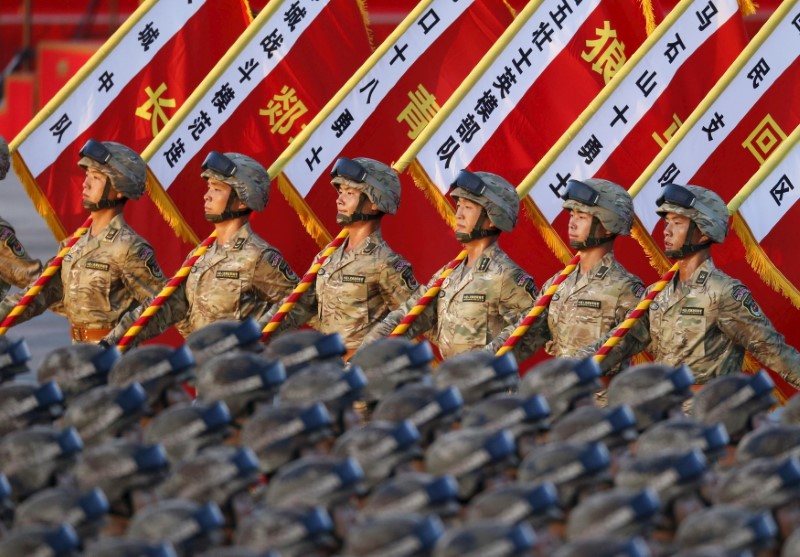BEIJING (Reuters) - China denied on Thursday that it had increased its troop presence on the border with North Korea after the murder of the estranged half-brother of North Korean leader Kim Jong Un in Malaysia.
Reports routinely circulate at times of heightened tension on the Korean peninsula of China sending troops to the border, which China always denies.
South Korean and U.S. officials say the North Korean leader's half brother, Kim Jong Nam, was assassinated by North Korean agents. North Korea has not acknowledged his death.
Some Hong Kong media last week reported that China had sent more soldiers to the border after Kim was attacked at Kuala Lumpur airport on Feb. 13.
"As for the reports you mentioned of the People's Liberation Army increasing troops on the Chinese-North Korean border, they are totally baseless and completely fabricated," defence ministry spokesman Ren Guoqiang told a monthly news briefing.
He did not elaborate.
Kim had spoken out publicly in the past against his family's dynastic control of the isolated, nuclear-armed state. He had been living in the Chinese territory of Macau under Beijing's protection.

China is reclusive North Korea's most important remaining ally, but China has been angered by its missile and nuclear tests and has signed up for several rounds of U.N. sanctions against North Korea at the same time as pushing for a diplomatic resolution through talks.